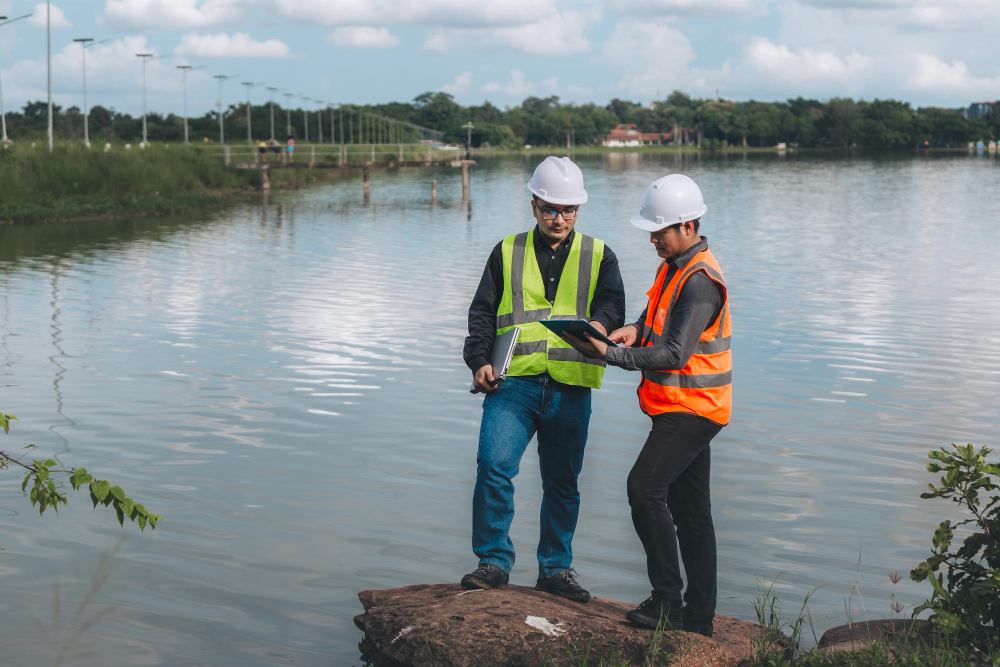
Maintaining a pristine and healthy pond or lake on your property may seem like a manageable task, but the complexities of aquatic ecosystems often require more than just good intentions. Many property owners and managers hesitate to seek professional assistance due to concerns about costs, perceived self-sufficiency, or a lack of awareness about the potential benefits. However, the advantages of consulting with trained and experienced pond or lake management professionals far outweigh any reservations.
In this brief article brought to you by Aquatic Restoration, we share some of what you can take away from a consultation with our time-tested professionals. Call Aquatic Restoration at any time of the day or send us a message to schedule a face-to-face meeting or on-site visit.
Pond and lake ecosystems are delicate and intricate, with various factors influencing their health and balance. Our professionals in pond and lake management bring a wealth of knowledge in limnology, hydrology, and biology to the table. These specialists understand the interconnected relationships between water quality, aquatic vegetation, and wildlife, allowing them to assess the unique needs of each waterbody.
By leveraging the expertise of pond maintenance specialist, property owners can gain a comprehensive understanding of the current state of their pond or lake and develop tailored management strategies.
One of the primary concerns for any pond or lake owner is water quality. Poor water quality not only affects the aesthetics of the waterbody but can also have detrimental effects on aquatic life. Professional consultants can conduct thorough water quality assessments, analyzing parameters such as nutrient levels, pH, and dissolved oxygen. They can then implement targeted strategies to improve water quality, whether through nutrient management, aeration systems, or other proven techniques.

Invasive aquatic plants and species can wreak havoc on a pond or lake by outcompeting native vegetation and disrupting the natural balance. Recognizing and effectively managing invasive species requires specialized knowledge.
Pond management professionals can identify invasive species early on and implement control measures that prevent their spread and mitigate their impact. Timely intervention can save property owners from the costly challenges like dealing with widespread infestations.
While the upfront cost of hiring a pond or lake management company may be a concern for some property owners, the long-term benefits far outweigh the initial investment. Professional consultants focus on sustainable and cost-effective solutions that prevent recurring issues, saving property owners money in the long run. By addressing problems at their root and providing ongoing monitoring and maintenance, our specialists contribute to the overall value and functionality of the waterbody.
Lastly, and certainly not least, there are the laws and regulations to consider. Many regions employ specific regulations governing pond and lake management to protect water resources and ecosystems.
Navigating these regulations can be daunting for property owners, but professional consultants are well-versed in compliance requirements. By working with experienced specialists, property owners can ensure that their management practices align with local regulations.
If you have any questions or concerns regarding pond maintenance, you are welcomed to call Aquatic Restoration. Our team is on standby to take your call and schedule a face-to-face meeting or on-site visit for as soon as possible.
Lake and pond dredging is an essential maintenance task that helps to improve water quality, restore depth and capacity,…
There’s a lot that goes into managing a lake. Beyond the aesthetics, it’s important to maintain ecological balance and…
Excessive algal growth is a serious threat to lakes and ponds. Left unchecked, algal blooms can deplete oxygen levels and…
Dredging is the removal of accumulated sediment and debris from the bottom of a lake or pond. This process is…
Pond and lake owners deal with a wide range of issues, including algae blooms, aquatic weed infestations, poor water clarity,…